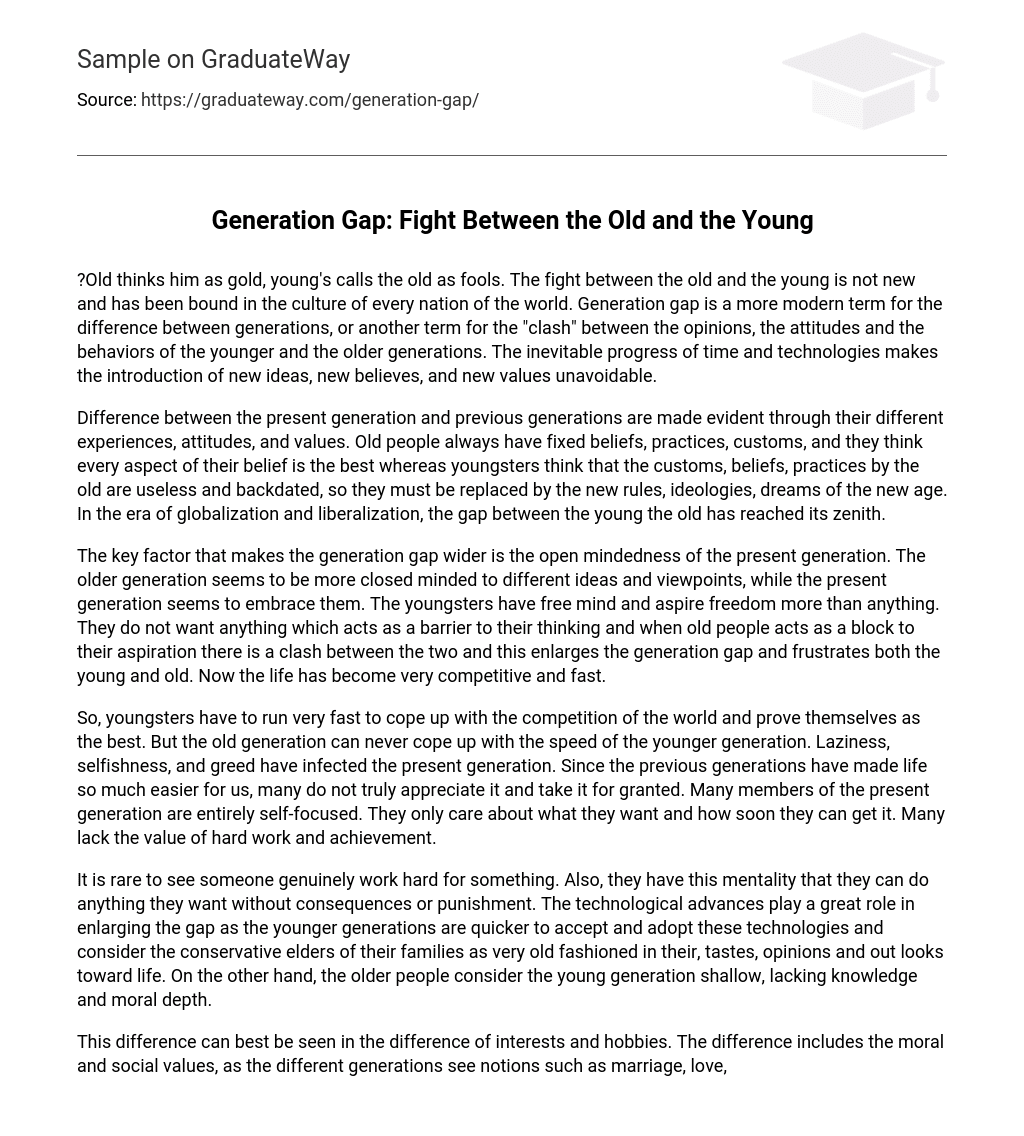Old people are valued by some individuals, but viewed as foolish by young people. This conflict between generations is universal and found in all cultures. The term “generation gap” refers to the differences between age groups and includes clashes of opinions, attitudes, and behaviors between younger and older individuals. As time goes on and technology progresses, new ideas, beliefs, and values are inevitably introduced.
There is a significant contrast between the present and previous generations in terms of their experiences, attitudes, and values. Older individuals hold firm convictions, practices, and customs which they consider superior. Conversely, younger individuals perceive these traditions as obsolete and insignificant, instead embracing new norms, ideologies, and aspirations of the contemporary age. The division between the young and old has intensified due to globalization and liberalization.
The widening generation gap is a consequence of the variances in openness between the current and older generations. The older generation tends to possess less open-mindedness, whereas the present generation enthusiastically embraces diverse ideas and perspectives. Young individuals exhibit a liberated mindset and prioritize freedom above all else. They resist anything that limits their thinking, which often results in conflicts when older individuals impede their aspirations. This exacerbates the generation gap and brings frustration for both age groups. In contemporary society, life has become exceedingly competitive and fast-paced.
Today’s younger generation must run at a fast pace in order to keep up with the highly competitive nature of the world and showcase their superiority. Conversely, the older generation is unable to match the speed of their youthful counterparts. The infiltration of laziness, selfishness, and greed has become prevalent among today’s generation. Despite previous generations having considerably improved our lives, many individuals fail to truly recognize and value these advancements. A substantial portion of today’s generation exhibits complete self-centeredness, prioritizing only their own desires and how quickly they can satisfy them. Additionally, there is a notable lack of appreciation for hard work and achievements.
It is unusual to witness genuine hard work from someone and the belief that they can act without consequences or punishment. Technological advances significantly contribute to widening the gap, as younger generations readily embrace and integrate these technologies, while considering their conservative family elders to be outdated in their preferences, opinions, and perspectives on life. Conversely, older individuals view the younger generation as superficial, lacking wisdom and ethical understanding.
The generation gap is primarily reflected in the varying interests and hobbies of different age groups. Moreover, these disparities extend to moral and social values, as each generation interprets concepts such as marriage, love, happiness, decency, and decorum differently. Consequently, conflicts and disagreements frequently arise within families between younger individuals and their older relatives. This divergence poses a significant risk to fundamental human relationships and weakens the stability of familial bonds. However, this problem can be alleviated by fostering genuine listening and empathetic approaches towards each other’s viewpoints.
The younger generation should acknowledge their duty towards the older family members, for they were once nurtured by them during their childhood. It is vital to establish strong bonds and trust with parents. Nonetheless, it is frequent for parents to object to their children asserting independence and transform into unreasonable authoritarian figures who strive to enforce their own viewpoint on them. Conversely, teenagers fail to comprehend that their parents possess greater wisdom and solely desire what is beneficial for them. Recognizing these realities has the potential to bridge the gap between generations.





